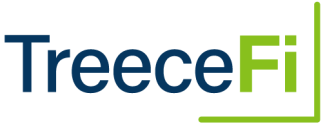
Student Loans, Forgive Me
Navigating the Complexities of Student Loan Repayment or Forgiveness Options
With the recent spotlight on Biden student loan forgiveness and ongoing debt relief efforts, understanding the maze of options, including income-driven repayment plans and consolidation, is crucial. In this blog, we uncover the complexities of student loan forgiveness, exploring the evolving eligibility criteria and the intricacies of repayment plans.
-
Are consolidating student loans the same thing as refinancing them?
-
What is forbearance?
-
How do you apply for deferment?
-
What is the difference between student debt forgiveness and cancellation?
These are common questions regarding what you need to know about the reality of loan payments restarting and finding ways to mitigate their impact on your financial health.
According to Federal Student Aid (FSA), deferment and forbearance both enable you to delay or decrease your federal student loan payments temporarily. The difference lies in the accrual (accumulation) of interest:
In deferment, interest does not accumulate on certain types of direct loans.
During forbearance, interest accrues on all types of direct loans.
The FSA states that a direct consolidation loan combines multiple federal education loans to lower monthly payments or qualify for forgiveness. Student loan refinancing merges loans into a new one with a lower interest rate and potentially longer repayment terms, saving money and increasing affordability, even for single loans.
Student Loan Forgiveness vs. Cancellation vs. Discharge
When it comes to the difference between student loan forgiveness vs. cancellation vs. discharge, certain requirements are to be determined based on your current career path or life circumstances. Here's an overview explaining which programs may be eligible for you:
- Cancellation: Undergo unique situations (such as your educational institution shutting down or encountering a disability).
- Forgiveness: If you’re employed by a government or not-for-profit organization, you might be eligible to have the remaining balance on your direct loans forgiven by the Public Service Loan Forgiveness (PSLF) program.
- Discharge: Federal programs such as closed-school discharge, Perkins Loan discharge, total and permanent disability discharge, and more.
Recent Developments in Student Loan Forgiveness
The Biden administration unveiled an updated plan to forgive student loan debt, suggesting that millions of Americans could start seeing debt relief as soon as this fall. The new set of proposals would benefit more than 30 million Americans, according to a fact sheet provided by the White House. That means nearly 70% of all federal student loan borrowers would see their debt reduced or fully canceled due to Biden's policies.
This is the second proposed plan after the administration’s first attempt was blocked from implementation by a U.S. Supreme Court decision.
The new plans target specific groups of borrowers. If implemented as proposed, borrowers could see relief if they fall into any of the following categories:
- Those who have balances bigger than what they originally borrowed due to interest.
- Those who already qualify for student loan forgiveness under existing programs but have not applied.
- Those who entered repayment at least 20 years ago.
- Those who enrolled in “low financial value” programs, which left students in debt but without good job prospects.
- Those experiencing financial hardship.
Actionable Steps for Borrowers
Navigating the world of student loans can often feel like deciphering a complex puzzle. The lingering questions about forgiveness, eligibility, and the impending resumption of payments can create significant uncertainty. From a planning point of view, here's what to do:
- Get organized and keep track of your loans.
- Consider all your options, including interest rate fluctuations.
- Make a plan to pay them back, and if legislation changes in your favor, you may get your loan forgiven, but don't fail to plan and pray for loan forgiveness because it likely won't happen.
If you're struggling with student loan debt, consider reaching out to a financial advisor or a student loan expert to explore your options.
Team Treece is here to help. Schedule a quick consult to discuss your unique loan concerns.
_ _ _
Additional Resources
Ready to launch a career and start adulting?
